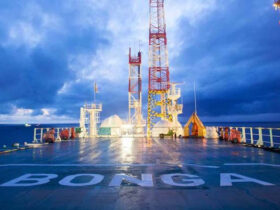The Chief of Air Staff (CAS), Air Marshal Hassan Abubakar, has commended Federal Government’s unflinching commitment to further beef up the operational capacity of the Nigerian Air Force (NAF).
He said more than 70 new aircraft were acquired by the federal government to boost training and combat readiness of the NAF.
Abubakar made the remarks during his maiden meeting with , Branch Chiefs, Air Officers’ Commanding , Operational Commanders and Commandants, on Thursday in Abuja.
He noted that the Federal Government has since 2015, acquired about 70 new aircraft to boost training and combat readiness of the NAF.
“In the coming months, we will be taking delivery of additional platforms to boost air power employment and projection capabilities as well as air combat training.
“No doubt, these acquisitions are clear signs of the Federal Government’s willingness to lead in combating national and regional threats to peace and security.
“Efforts have also been emplaced to enhance platform serviceability, which has led to us, maintaining an average serviceability status of over 70 per cent with positive implications on ongoing joint and independent operations,” he said.
He said with efforts emplaced to enhance platform serviceability vis-a-vis current security environment, only a carefully thought-out strategy guided by a strong philosophy could suffice.
He said that the focus of his policy which is “to transform the NAF into an agile and resilient force that effectively meets the airpower demands of national security in all operational environments” would adequately situate NAF to address the nation’s security challenges.
CAS added that NAF would leverage on technology, innovation, lessons learnt as well as the personnel and fleets at its disposal to effectively checkmate the security threats confronting the country.
Abubakar pledged to ensure the optimisation of NAF structures and establishments to enhance operational effectiveness, as well as deliberate training and mission-oriented force development.
He said other enablers were proactive logistics support and strong maintenance culture, prioritising research and development, leveraging cutting-edge technology, strategic partnerships and lessons learnt.








Leave a Reply